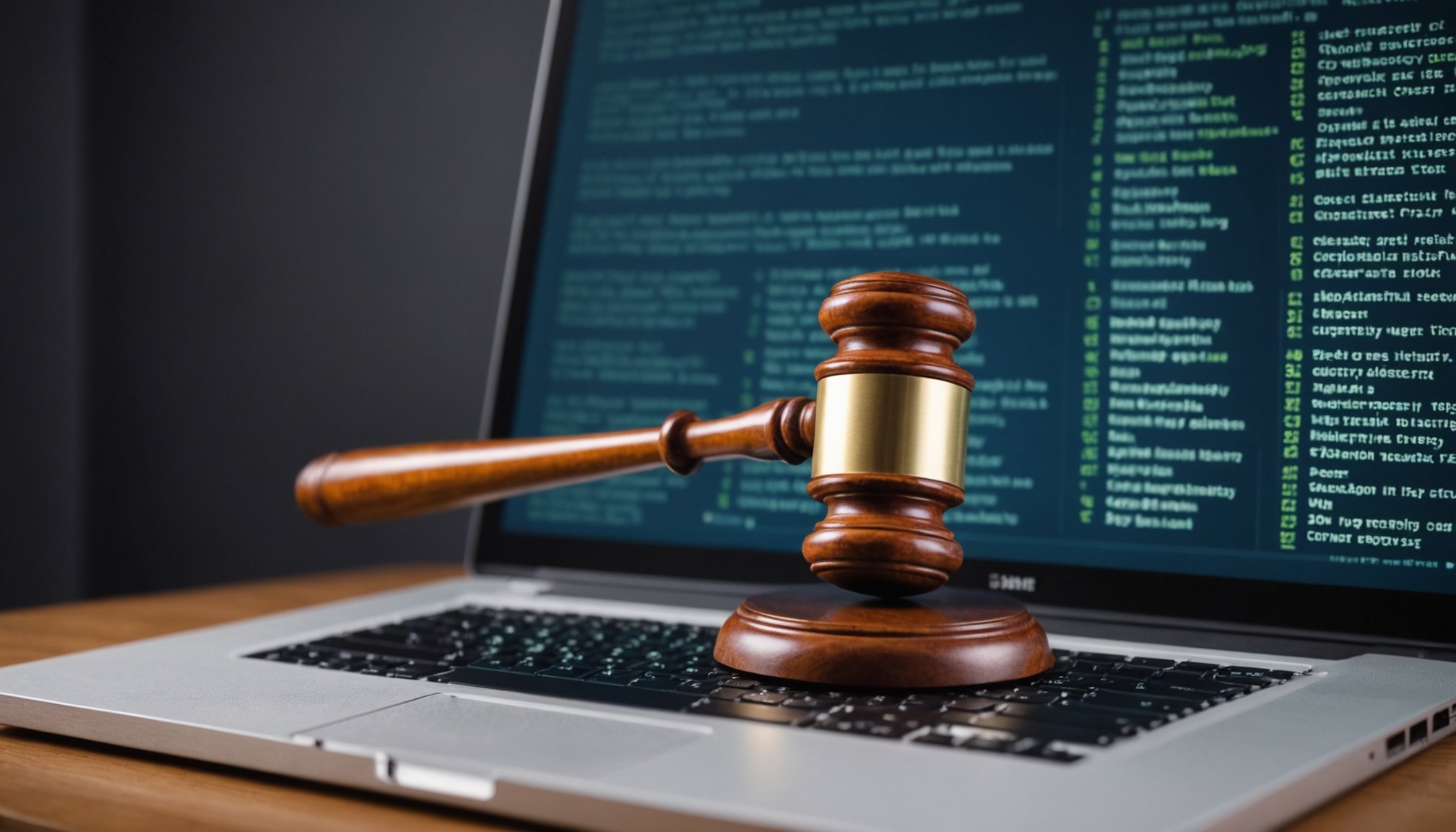Overview of Cybersecurity Challenges for UK Law Firms
Navigating the cybersecurity challenges in the legal sector demands an in-depth understanding of its unique vulnerabilities. Law firms handle vast amounts of confidential and sensitive data, making them attractive targets for cybercriminals. The precise nature of their work, often involving intellectual property and sensitive client information, exposes them to significant threats.
A data breach can severely damage a firm’s reputation and erode client trust, both of which are hard to rebuild. Clients expect their information to remain secure; thus, any breach could lead not only to legal repercussions but also to losing clients.
Also to discover : Proven Strategies for UK Small Businesses to Craft a Winning Social Media Blueprint
Moreover, UK law firms must adhere to key regulatory requirements. The GDPR outlines strict data protection laws that directly affect how firms manage and protect data. Non-compliance can result in severe fines, further adding to the financial fallout from a data breach. Additionally, the Solicitors Regulation Authority (SRA) provides guidelines to ensure firms uphold the highest standards for data protection. Meeting these legal standards is crucial for safeguarding both the firm’s operations and client’s confidential information.
Essential Cybersecurity Tactics for Law Firms
In a digital age, robust cybersecurity tactics are indispensable for law firms striving to protect sensitive client information. Implementing strong access controls is a cornerstone. This means enforcing password policies combined with multi-factor authentication to ensure only authorised personnel can access critical systems.
Also read : Transforming Supply Chains Ethically: The UK Business’s Definitive Guide to Leveraging Blockchain Technology
Implementation of Strong Access Controls
Ensuring robust access controls involves assigning specific privileges based on roles. This limits access to only necessary information, closing loopholes that cybercriminals might exploit.
Regular Software Updates and Patch Management
Crucial to law firm protection is maintaining regular software updates and effective patch management. These timely updates are essential in mitigating vulnerabilities and preventing exploitation by malicious entities.
Employee Training and Awareness Programs
Lastly, employee training plays a pivotal role in client information security. By understanding common cybersecurity threats, such as phishing attacks, and being aware of precautionary measures, employees act as the first line of defence.
Proactive engagement in these cybersecurity measures not only fortifies the law firm’s data defences but also instils confidence in clients regarding the safeguarding of their sensitive information. These steps are not just recommendations but necessary tactics to ward off potential data breaches.
Tools and Technologies for Enhancing Cybersecurity
In the realm of law firm operations, employing advanced cybersecurity tools is crucial for safeguarding sensitive data.
Firewall and Intrusion Detection Systems
The selection of well-suited firewalls for law firms is critical, given the sector’s unique vulnerabilities. These systems act as the first line of defence by controlling network traffic and preventing unauthorised access. Tailored firewalls cater specifically to legal industry requirements, offering robust security frameworks.
Data Encryption Solutions
Data encryption technologies ensure that sensitive legal documents remain confidential. Implementing strong encryption protocols protects information by converting it into unreadable code without authorised access. Various encryption types, such as AES and RSA, are particularly effective in securing client communications and sensitive files.
Email Security and Phishing Protection
Law firms face persistent threats from phishing attacks. Integrating comprehensive email security mechanisms, including advanced spam filters and authentication protocols, helps mitigate these risks. Best practices include educating employees about recognising phishing attempts and deploying anti-phishing software tools, enhancing overall resilience against email-based threats.
These data protection technologies not only strengthen the defence mechanisms of law firms but also promote trust and confidence among clients regarding the security of their information.
Compliance with Cybersecurity Regulations
Navigating the complexities of compliance with cybersecurity regulations is essential for law firms in the UK. Regulations like the General Data Protection Regulation (GDPR) impose strict guidelines, requiring firms to actively protect client information through robust data security measures and stringent data protection laws.
The GDPR, for instance, demands that law firms obtain explicit consent before collecting personal information, ensuring transparency about data usage. Non-compliance can lead to severe penalties, further exacerbating the damage from potential data breaches.
Equally critical is understanding the role of the Solicitors Regulation Authority (SRA). Acting as a regulatory body, the SRA mandates that law firms adhere to high standards of data management, focusing on confidentiality and client protection. This regulatory framework ensures that firms maintain effective systems to safeguard their data environments.
Conducting a compliance audit is a step forward in legal practice. It involves assessing current data protection protocols, identifying vulnerabilities, and implementing corrective actions to enhance security postures. By regularly evaluating compliance with these legal standards, firms can protect against potential breaches while preserving client trust and firm reputation.
Case Studies: Successful Cybersecurity Implementations
Cybersecurity success in the legal sector can be exemplified through detailed case studies. Several UK law firms have successfully mitigated cybersecurity risks, presenting pivotal lessons for others. These firms have adopted innovative strategies to bolster client data protection and fortify their operations against potential breaches.
High-profile data breaches often serve as cautionary tales, underscoring the necessity for robust cybersecurity measures. For instance, a prominent London-based law firm faced a notable breach but leveraged the situation to enhance its cybersecurity posture. By thoroughly analysing their vulnerabilities, they implemented stronger access controls and comprehensive employee training programs. These measures dramatically improved their resilience against future threats.
Furthermore, many firms are adopting cloud-based solutions, which offer scalable security measures and real-time threat detection. By migrating essential services to secure cloud platforms, law firms enhance their data protection capabilities.
Innovative approaches, such as utilising artificial intelligence and machine learning, have also been instrumental. These technologies enable law firms to proactively identify and address potential threats, ensuring a higher level of security for client information. Through effective strategy implementation, these cybersecurity case studies highlight the importance of evolving protection measures.
Future Trends in Law Firm Cybersecurity
In the evolving world of the legal industry, staying ahead requires embracing emerging cybersecurity advancements. With the increase in complex threats, law firms are expected to boost their reliance on cyber insurance. This consideration safeguards against the financial impacts of data breaches and disruptions. Cyber insurance is becoming instrumental for legal practices, providing a safety net in unforeseen cyber events and enhancing client trust through reassurance around indemnification.
Increase in Cyber Insurance Usage
As legal operations become more interconnected, the popularity of comprehensive cyber insurance policies has surged. These policies are designed to cover costs related to breaches, including forensic investigations and client notification processes.
Adoption of AI and Machine Learning
The integration of AI and machine learning represents a pivotal innovation. These technologies streamline threat detection, offering predictive analysis to identify risks before they escalate. By employing advanced algorithms, law firms enhance resilience against potential cyber threats proactively.
Evolving Threat Landscape
New cybersecurity threats are an ever-present challenge. It’s crucial for law firms to anticipate shifts in the threat landscape, identifying emerging risks such as sophisticated ransomware attacks. Staying updated on these trends helps in developing comprehensive security strategies tailored to evolving risks.
Overview of Cybersecurity Challenges for UK Law Firms
In the rapidly evolving digital landscape, cybersecurity challenges for UK law firms are pressing concerns. These firms must be acutely aware of their unique vulnerabilities, which stem from handling sensitive client information and intellectual property.
Data breaches pose significant threats, leading to severe reputational damage and loss of client trust. When a breach occurs, clients may perceive the firm as unable to safeguard confidential data, eroding confidence. Legal repercussions further compound the impact, with potential lawsuits and financial penalties.
Meeting regulatory requirements is imperative for UK law firms. The General Data Protection Regulation (GDPR), with its stringent data protection laws, demands compliance, ensuring secure data management and protection. Failures in compliance can incur heavy fines, fundamentally affecting a firm’s financial health and credibility.
Moreover, adherence to guidelines set by the Solicitors Regulation Authority (SRA) is essential. The SRA prioritises high standards in data management, focusing on confidentiality and client protection as key tenets. Maintaining these standards not only safeguards firm operations but also reinforces client trust and stability in legal practices. Understanding these cybersecurity challenges is crucial for developing effective strategies to fortify law firm defences.











